How a New York City Public Nursing Home Handled the Three Major Ethical Challenges in Post-Acute Care Posed by the Pandemic
1.00 CME / 1.00 CMD Management / 1.00 MOC
This session will present three ethical challenges in post-acute care when the pandemic first struck New York City: (1) social isolation vs. the autonomy of nursing home (NH) residents, (2) health-care workers’ (HCWs) duty (beneficence) to care for these residents vs. their personal safety concerns, and (3) the moral obligation (justice) to provide the best medical care vs. limited availability of resources. Key topics covered will be: (1) how a strategy based upon the ethical concept of solidarity and “thinking outside of the box” can be applied to each of these challenges; (2) the roles played by key nursing home leaders to deal with it via a collaborative team approach with enhanced communications, and (3) how such efforts can lead to a COVID-19 PI bundle to successfully combat the third ethical challenge.
Presenters
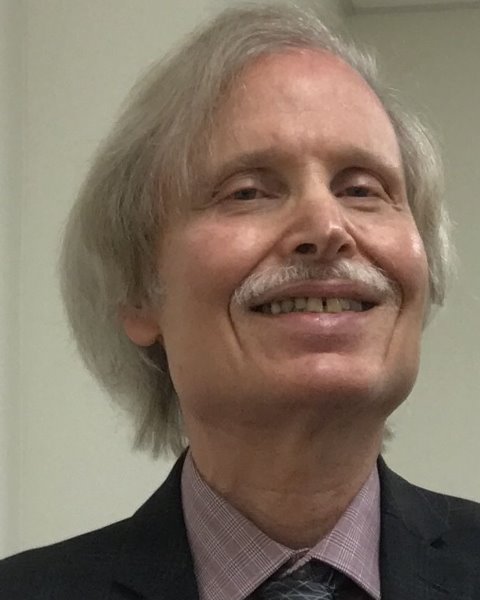 Howard Finger, DO, is clinical ethics consultant at Coler Rehabilitation and Nursing Care Center and at Henry J. Carter Specialty Hospital and Nursing Facility, and he is co-chairperson of the NYC Health + Hospitals Bioethics Council. In conjunction with the Bioethics Council, in 2016 he helped develop an Algorithm for the Unbefriended to assist interdisciplinary care teams in making end-of-life treatment decisions when patients lack both decisional capacity and surrogates, which he applied at Coler. He was lead author of two articles on the subject in and is in the process of completing a third one. For his work with the unbefriended, Dr. Finger received the 2020 Foundation for Post-Acute & Long-Term Care Medicine’s Quality Improvement & Health Outcome (QIHO) Award for improving the quality-of-life for persons living in nursing homes. In the spring of 2020, Dr. Finger co-developed a COVID-19 Performance Improvement (PI) Bundle and served as PI team co-leader at Coler where it contributed to a large reduction in the COVID-19 infection fatality rate among its highly vulnerable resident population, which is described in a recently published article in the American Journal of Medial Quality, titled Newly developed COVID-19 bundle greatly reduces the infection fatality rate for highly vulnerable nursing home population. The PI bundle helped to address inequities in access to quality health care adversely impacting ethic-racial minorities as the standard of care was elevated equally for all during the pandemic with promising outcome results.
Howard Finger, DO, is clinical ethics consultant at Coler Rehabilitation and Nursing Care Center and at Henry J. Carter Specialty Hospital and Nursing Facility, and he is co-chairperson of the NYC Health + Hospitals Bioethics Council. In conjunction with the Bioethics Council, in 2016 he helped develop an Algorithm for the Unbefriended to assist interdisciplinary care teams in making end-of-life treatment decisions when patients lack both decisional capacity and surrogates, which he applied at Coler. He was lead author of two articles on the subject in and is in the process of completing a third one. For his work with the unbefriended, Dr. Finger received the 2020 Foundation for Post-Acute & Long-Term Care Medicine’s Quality Improvement & Health Outcome (QIHO) Award for improving the quality-of-life for persons living in nursing homes. In the spring of 2020, Dr. Finger co-developed a COVID-19 Performance Improvement (PI) Bundle and served as PI team co-leader at Coler where it contributed to a large reduction in the COVID-19 infection fatality rate among its highly vulnerable resident population, which is described in a recently published article in the American Journal of Medial Quality, titled Newly developed COVID-19 bundle greatly reduces the infection fatality rate for highly vulnerable nursing home population. The PI bundle helped to address inequities in access to quality health care adversely impacting ethic-racial minorities as the standard of care was elevated equally for all during the pandemic with promising outcome results.
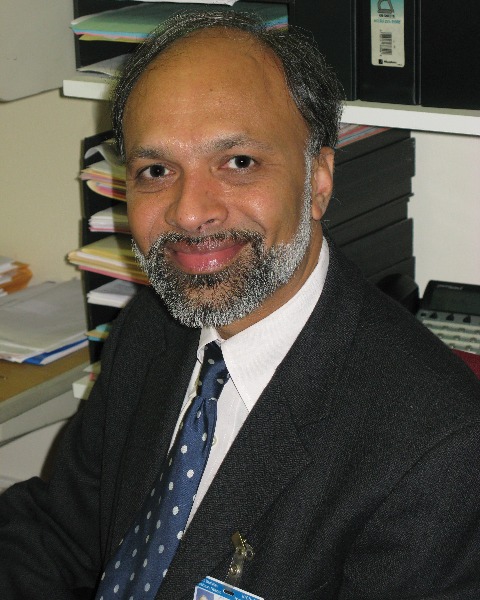 Ravindra Amin, MD, is chief of psychiatry at Coler Rehabilitation and Nursing Care Center. He is a board-certified geriatric and addiction psychiatrist. Dr. Amin has championed the causes of psychotropic stewardship and behavior management in the PALTC setting for many years. He provides staff support which is an integral part of his patient care practice and teaches geriatric psychiatry fellows the practice of psychiatry in the PALTC setting. Dr. Amin received the Howard Guterman Award at AMDA in 2014.
Ravindra Amin, MD, is chief of psychiatry at Coler Rehabilitation and Nursing Care Center. He is a board-certified geriatric and addiction psychiatrist. Dr. Amin has championed the causes of psychotropic stewardship and behavior management in the PALTC setting for many years. He provides staff support which is an integral part of his patient care practice and teaches geriatric psychiatry fellows the practice of psychiatry in the PALTC setting. Dr. Amin received the Howard Guterman Award at AMDA in 2014.
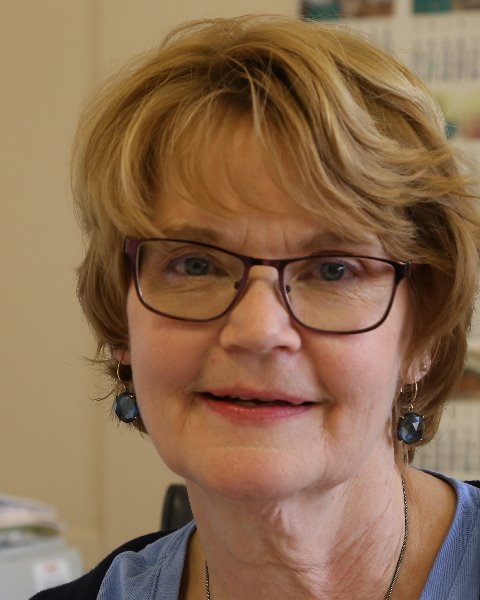 Cheryl Dury, LMSW, CCM, is currently the Director of Social Work/Discharge Planning at the NYC Health + Hospitals/Coler. She is also a Certified Case Manager. Ms. Dury has been working in the skilled nursing home industry for the last 20 years. Ms. Dury has worked at various long term skilled nursing facilities and worked as a case manager/discharge planner in the post-acute realm where her responsibilities included the timely community discharge and care transition of a sizable short term nursing facility population. Ms. Dury has presented at the 2014 National Institute for Healthcare Improvement on Bundled Payment for Care Improvement: Selecting Post-Acute Providers workshops, at the 2017 H+H Post-Acute Care workshop on Care Coordination and Next Steps, at the NYC Health & Hospitals Corser Bioethics Symposium of 2019 and 2020. She is a coauthor of published work in the NYSBA Health Law Journal, Winter 2020, & Fall, 2018, on Life Sustaining Treatment Decisions for Unbefriended Nursing Home Residents. She is also the 2014 recipient of the NYS Leading Age "Employee of Distinction Award."
Cheryl Dury, LMSW, CCM, is currently the Director of Social Work/Discharge Planning at the NYC Health + Hospitals/Coler. She is also a Certified Case Manager. Ms. Dury has been working in the skilled nursing home industry for the last 20 years. Ms. Dury has worked at various long term skilled nursing facilities and worked as a case manager/discharge planner in the post-acute realm where her responsibilities included the timely community discharge and care transition of a sizable short term nursing facility population. Ms. Dury has presented at the 2014 National Institute for Healthcare Improvement on Bundled Payment for Care Improvement: Selecting Post-Acute Providers workshops, at the 2017 H+H Post-Acute Care workshop on Care Coordination and Next Steps, at the NYC Health & Hospitals Corser Bioethics Symposium of 2019 and 2020. She is a coauthor of published work in the NYSBA Health Law Journal, Winter 2020, & Fall, 2018, on Life Sustaining Treatment Decisions for Unbefriended Nursing Home Residents. She is also the 2014 recipient of the NYS Leading Age "Employee of Distinction Award."
 Rani Rao, MD, CMD, is Chief Medical Officer for Coler Rehabilitation and Nursing Center which is the largest public skilled long term care facility in the country. In addition to being a Board-certified internist and geriatrician, she trained as fellow in medical ethics at McLean Center of Clinical Medical Ethics, University of Chicago. Prior to joining Coler, she served as core faculty for Internal Medicine residency program, director of post-acute care service line and co-chair of medical ethics at Mercyhealth system of Northern IL and Wisconsin.
Rani Rao, MD, CMD, is Chief Medical Officer for Coler Rehabilitation and Nursing Center which is the largest public skilled long term care facility in the country. In addition to being a Board-certified internist and geriatrician, she trained as fellow in medical ethics at McLean Center of Clinical Medical Ethics, University of Chicago. Prior to joining Coler, she served as core faculty for Internal Medicine residency program, director of post-acute care service line and co-chair of medical ethics at Mercyhealth system of Northern IL and Wisconsin.
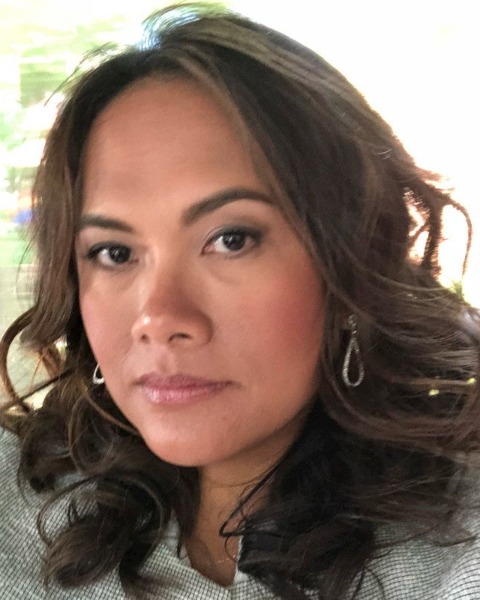 Jovemay Santos, MS. Ed., CTRS, CDP, is the Director of Therapeutic Recreation Services (TRS), Library, Computer Lab, Chaplaincy, and Volunteers department at NYC HH | Coler. She has over 21 years of experience in the field of Recreation Therapy. In 2016, she was featured in a film “Healing with Harmony- A Music and Memory Story” that won 22nd Annual Communicator Award of Excellence from the Academy of Interactive and Visual Arts”. She's a key player in successful implementation of structured meaningful programming on the Memory Care Unit that created an outcome oriented approach to decrease falls, altercations, and use of psychotropic medications where she went to co-present at the Society for Post-Acute and Long Term Care Medicine in Phoenix, Arizona in 2017.
Jovemay Santos, MS. Ed., CTRS, CDP, is the Director of Therapeutic Recreation Services (TRS), Library, Computer Lab, Chaplaincy, and Volunteers department at NYC HH | Coler. She has over 21 years of experience in the field of Recreation Therapy. In 2016, she was featured in a film “Healing with Harmony- A Music and Memory Story” that won 22nd Annual Communicator Award of Excellence from the Academy of Interactive and Visual Arts”. She's a key player in successful implementation of structured meaningful programming on the Memory Care Unit that created an outcome oriented approach to decrease falls, altercations, and use of psychotropic medications where she went to co-present at the Society for Post-Acute and Long Term Care Medicine in Phoenix, Arizona in 2017.
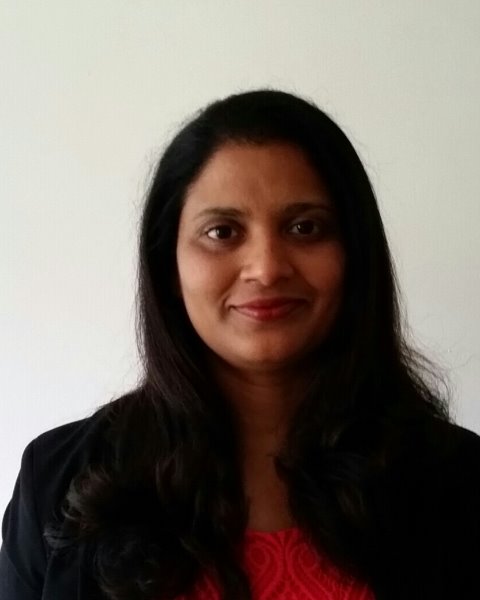 Deepa Vinoo, RN, is a board-certified geriatric nurse and an associate director of nursing at Coler, as well as the nursing director of our 150 bedded Memory Care Units. She holds an MSN degree in Psychiatric Nursing and is a Certified Dementia Care Practitioner. She previously helped lead our award-winning project “Reduction of Antipsychotics in Dementia Related Behavior’, and was the project director for "building palliative care in dementia at NY City Health+Hospitals/Coler. Ms.Vinoo has been leading Music & Memory program at Coler. During the pandemic, Ms. Vinoo was the nursing leader of our successful palliative care initiative.
Deepa Vinoo, RN, is a board-certified geriatric nurse and an associate director of nursing at Coler, as well as the nursing director of our 150 bedded Memory Care Units. She holds an MSN degree in Psychiatric Nursing and is a Certified Dementia Care Practitioner. She previously helped lead our award-winning project “Reduction of Antipsychotics in Dementia Related Behavior’, and was the project director for "building palliative care in dementia at NY City Health+Hospitals/Coler. Ms.Vinoo has been leading Music & Memory program at Coler. During the pandemic, Ms. Vinoo was the nursing leader of our successful palliative care initiative.
Learning Objectives
- Identify three daunting ethical challenges in post-acute care when the pandemic first struck NYC: (1) the social isolation imposed upon NH residents, which tore at their social autonomy; (2) apprehension among HCWs of contracting this illness while doing their duty (beneficence) by caring for NH residents; and (3) the moral obligation (justice) of HCWs to provide the best medical treatment available for this vulnerable population versus the limited availability of effective therapeutic resources.
- Design an effective strategy to deal with a new emerging health care crisis such as COVID-19 without an existing practical contingency plan in place to deal with it, by applying the little-known ethical concept of solidarity and by incorporating a mindset involving “thinking outside of the box” to effectively deal with each of the ethical challenges posed by this crisis via a collaborative team approach with enhanced communications.
- Formulate roles to be played by key NH leaders in implementing the plan devised based upon solidarity and “thinking outside the box” to address these three ethical challenges that will involve multi-tasking, wearing several hats, and walking the extra mile in the spirit of solidarity.
- Design a performance improvement plan to address the third ethical challenge, the moral obligation (justice) to provide the best medical treatment available for a vulnerable nursing home population versus the limited availability of effective therapeutic resources, by applying the ethical concept of solidarity and “thinking outside the box” to elevate the level of care for all residents, geared toward overcoming inequities in health care that contributed to this problem, in order to mitigate the impact of this illness.
Credit Information
Activity Created 3/2022
Credits Available Until 3/2025
Credit Statements:
CME: AMDA – The Society for Post-Acute and Long-Term Care Medicine designates this enduring material for a maximum of 1.0 AMA PRA Category 1 Credit(s)TM. Physicians should only claim credit commensurate with the extent of their participation in the activity.
AMDA – The Society for Post-Acute and Long-Term Care Medicine for Post-Acute and Long-Term Care Medicine is accredited by the Accreditation Council for Continuing Medical Education (ACCME) to provide continuing medical education for physicians.
CMD: This self-study activity has been pre-approved by the American Board of Post-Acute and Long-Term Care Medicine (ABPLM) for a total of 1.0 management hours toward certification or recertification as a Certified Medical Director (CMD) in post-acute and long-term care medicine. The CMD program is administered by the ABPLM. Each physician should claim only those hours of credit actually spent on the activity.
ABIM Maintenance of Certification (MOC): Successful completion of this CME activity, which includes participation in the evaluation component, enables the participant to earn up to 1.0 Medical Knowledge MOC points and patient safety credit in the American Board of Internal Medicine’s (ABIM) Maintenance of Certification (MOC) program.
Participants will earn MOC points equivalent to the amount of CME credits claimed for the activity. It is the CME activity provider’s responsibility to submit participant completion information to ACCME for the purpose of granting ABIM MOC credit.
Visit the Continuing Education page for information on if and how you can claim credit/hours for AMDA’s education.
Disclosure Information:
The Society requires the disclosure of all speaker/faculty/planner’s relevant financial relationships; presence of off-label use of a device or medication; and discussion of any experimental, new or evolving topic prior to each accredited education activity.
If the learner perceives any bias toward a commercial product or service, advocation of unscientific approaches to diagnosis or therapy, or recommendation, treatment, or manners of practicing healthcare that are determined to have risks or dangers that outweigh the benefits or are known to be ineffective in the treatment of patients please report this to the Society’s staff.
All relevant financial relationships have been identified, mitigated, and resolved.
- The following AMDA Education Committee members have financial relationships to report: Diane Sanders-Cepeda, DO, CMD — UHC E&I Retiree Solutions: Full-Time Employee; all others have no relationships with ineligible companies.
- The speakers have no relevant financial relationships.
- AMDA staff have no relationships with ineligible companies.